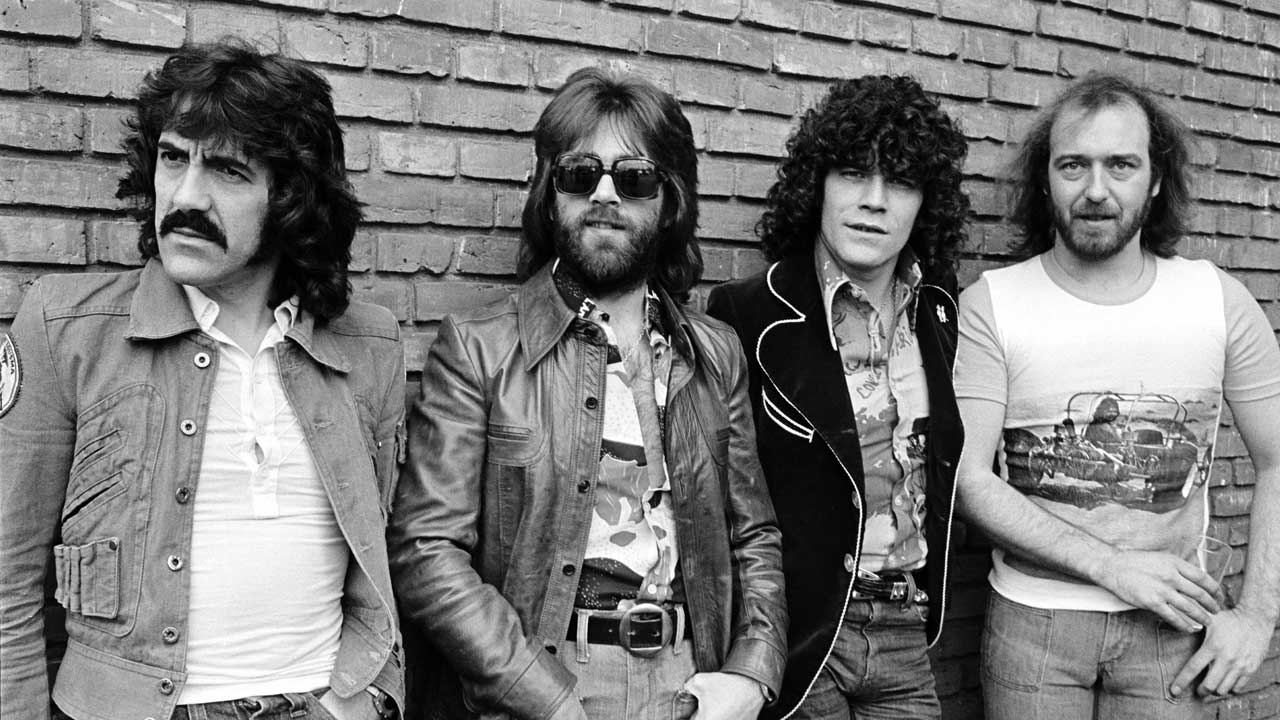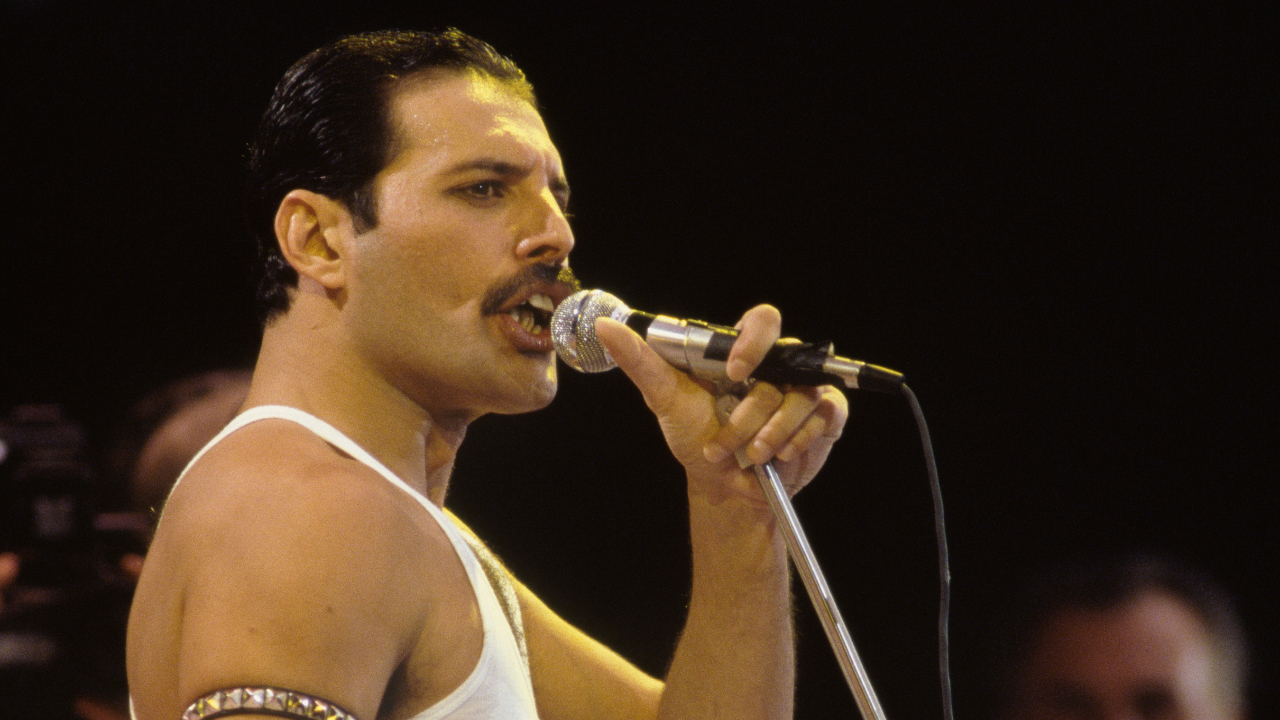"Bands like Yes would spend six months doing an album, but in that time we'd do two albums and three tours": How Nazareth recorded Miss Misery
Inspired by another band’s classic track, Nazareth nailed the vibe they were striving for and ended up with a fan favourite – although their manager wasn’t too impressed with the vocals

Select the newsletters you’d like to receive. Then, add your email to sign up.
You are now subscribed
Your newsletter sign-up was successful
Want to add more newsletters?

Every Friday
Louder
Louder’s weekly newsletter is jam-packed with the team’s personal highlights from the last seven days, including features, breaking news, reviews and tons of juicy exclusives from the world of alternative music.

Every Friday
Classic Rock
The Classic Rock newsletter is an essential read for the discerning rock fan. Every week we bring you the news, reviews and the very best features and interviews from our extensive archive. Written by rock fans for rock fans.

Every Friday
Metal Hammer
For the last four decades Metal Hammer has been the world’s greatest metal magazine. Created by metalheads for metalheads, ‘Hammer takes you behind the scenes, closer to the action, and nearer to the bands that you love the most.

Every Friday
Prog
The Prog newsletter brings you the very best of Prog Magazine and our website, every Friday. We'll deliver you the very latest news from the Prog universe, informative features and archive material from Prog’s impressive vault.
One day in the early weeks of 1975, Scottish rock band Nazareth were working at Air Studios in London, close to Oxford Circus, finishing their sixth album, Hair Of The Dog. There was a buzz around the place; in an adjacent room, Mott The Hoople were recording new tracks; in another was Paul McCartney.
Nazareth’s singer Dan McCafferty had just laid down his lead vocal for a heavy, slow-rolling number called Miss Misery, and Pete Agnew, the group’s bassist, was blown away by what he’d heard. “Dan really let rip,” he recalls. “It was fucking amazing.”
What was more amazing to Agnew was that, as he says now, still incredulous: “Our manager sat there with us, listening to the track, and said: ‘Aye, it’s going to be great when Dan gets the vocal right.’ I thought: ‘This guy’s managing us? You must be joking!’”
For Agnew – now 77 and Nazareth’s sole remaining founder member – Miss Misery is one of the band’s greatest songs. Not only a cornerstone of their biggest-selling album, but also a staple of their live set for decades and a big favourite with the fans.
Going into 1975, Nazareth had strong momentum, with three successive albums hitting big in the UK and across Europe: Razamanaz and Loud ’N’ Proud in ’73, both produced by ex-Deep Purple bassist Roger Glover, and Rampant in ’74, co-produced by Glover with Nazareth guitarist Manny Charlton.
Hard rock was the band’s default setting but, as Agnew says, “we did tuneful songs, and we used to think in terms of three minutes when we were writing.” As a result, they also had hit singles with Broken Down Angel and Bad, Bad Boy, and also with an inspired cover of Joni Mitchell’s This Flight Tonight, which went to No.1 in Germany.
But for Nazareth, there was another territory to conquer. So many British rock bands had made it big in America, from The Beatles and the Stones to Led Zeppelin and Bad Company, and the guys wanted a piece of that action. As Agnew says: “All the British bands were the same – you never really felt you’d made till you cracked it in America. We’d toured for ages out there but never really broken through.”
Sign up below to get the latest from Classic Rock, plus exclusive special offers, direct to your inbox!
To drive the band forward, a new approach was taken with Hair Of The Dog – a tougher sound, which crystallised in Miss Misery, was achieved with Manny Charlton producing alone.
“We all felt that Rampant was a bit soft,” Agnew says. “So with Hair Of The Dog we decided to go a little harder, with a bluesier influence. The sound was so much heavier because that’s the sound that Manny liked. He always thought that was the sort of racket we should be making.”
Miss Misery, true to Nazareth’s tried-and-trusted MO, was born out of a jam session. “We always wrote that way,” Agnew says. “Manny would start playing a riff, we’d join in, and then Dan would just yodel along over the top.”
With this track, the riff was inspired by what Agnew calls “one of the best rock songs that’s ever been recorded” – Free’s Fire And Water, from five years earlier. “You start off copping one thing,” he says, “but as you bring in your own ideas it develops from there. It became our own song, as these things do.”
The title and lyrics for Miss Misery were McCafferty’s take on a classic tradition: the mean-woman blues. ‘Spend my money on a crystal ball, and the charms of a gypsy dancer/ Trying to break the spell you hold on me.’ A story not, Agnew explains, drawn from the singer’s own experience. “Dan had a great imagination,” he says. “He wasn’t too much into the love songs, but this was a love song with an edge.”
The recording process was brisk, the whole album completed in just nine days, beginning with backing tracks laid down at Escape Studios in Kent. “The equipment in that place was terrible,” Agnew recalls. “But you could get a good, gritty sound, and everything was recorded live off the floor. We’d count four and go, ‘I’ll see you at the end of the song.’ People used to say: ‘How do you know when you’ve got the take? Well, if we get to the end without stopping, that’s the one.”
Likewise, when McCafferty did his vocal tracks in London, he made short work of it. “We didn’t hang about. Bands like Yes would spend six months doing an album, but in that time we’d do two albums and three tours.”
Nazareth weren’t striving for perfection. Even when working flat-out, they enjoyed a degree of looseness in the studio. “There was always a few beers around and a nip of whisky if anyone fancied it,” Agnew says. “I don’t think it would be considered a proper take if you didn’t have a bottle of beer on the go.”
Their logic was simple. As Agnew puts it: “Rock’n’roll is all about capturing a vibe.” And with this album – in Miss Misery, most of all – they nailed it. What turned Hair Of The Dog into the band’s million-selling breakthrough in America was a hit single that was not even included on the UK and European editions of the album – an emotionally charged version of the ballad Love Hurts, originally recorded by the Everly Brothers. And from that, as Agnew proudly reflects, “every song on the album became a classic for us. We still play those songs – Love Hurts, Miss Misery, Hair Of The Dog. If we didn’t, people would want their money back.”
Only once, Agnew says, has Miss Misery left a Nazareth audience disappointed, and that was when he tried to sing it.
“We were in Romania,” he recalls. “Dan was still in the band, but that night he was really in a bad way – frankly, he had the shits. When we started the intro to Miss Misery, Dan ran off stage. I said to the guys: ‘No problem, I’ll do the vocal.’ But after the first two lines I just gave up. I’d played that song a million times, and I didn’t have a fucking clue what the words were.”
Nazareth play four shows in New Zealand in the coming week, before performing at the Karbi Youth Festival in India on January 16. For full dates, visit the Nazareth website.
Freelance writer for Classic Rock since 2005, Paul Elliott has worked for leading music titles since 1985, including Sounds, Kerrang!, MOJO and Q. He is the author of several books including the first biography of Guns N’ Roses and the autobiography of bodyguard-to-the-stars Danny Francis. He has written liner notes for classic album reissues by artists such as Def Leppard, Thin Lizzy and Kiss, and currently works as content editor for Total Guitar. He lives in Bath - of which David Coverdale recently said: “How very Roman of you!”

